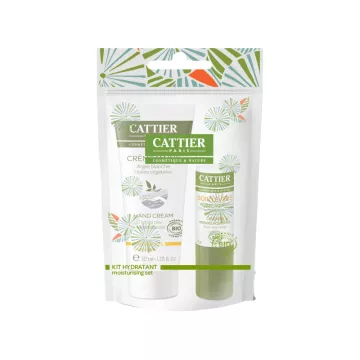
Why is it important to take care of your lips?
Lips are a delicate and exposed part of the face. Unlike the skin on the rest of the body, they contain no sebaceous glands, making them more susceptible to dryness and chapping. Proper lip care helps to keep lips moisturized, prevent cracking and maintain a smooth, healthy appearance. By incorporating a lip balm enriched with natural ingredients such as shea butter or jojoba oil, we can strengthen the skin barrier and protect lips from external aggressors such as wind, cold and UV rays.
What are the key ingredients to look for in a lip care product?
For optimum effectiveness, certain ingredients are particularly recommended in lip care products:
These ingredients work in synergy to soothe, nourish and protect lips, ensuring their health and beauty every day.
How do I treat chapped, dry lips?
Treating chapped lips starts with proper hydration. Using a lip balm rich in shea butter or jojoba oil several times a day can greatly help. Avoid licking your lips, as saliva can dry them out further. To gently exfoliate dead cells, a weekly scrub with a mixture of sugar and honey is recommended. Applying a thick layer of lip balm before bedtime also helps restore moisture overnight. Finally, drinking plenty of water helps maintain hydration from the inside out.
What effects does the sun have on the lips, and how can we protect them?
Lips, like skin, can suffer damage from UV rays, which can lead to burns, premature aging and an increased risk of skin cancer. To protect lips from the sun, it's essential to use a lip balm with an SPF of at least 15. Products containing mineral filters such as zinc oxide or titanium dioxide are particularly effective. Apply lip balm regularly, especially after eating or drinking, to ensure continuous protection. Wearing a wide-brimmed hat can also offer extra protection.
Does lip care differ according to the season?
Yes, lip care needs to be adapted to the different seasons to meet the changing needs of the skin. In winter, lips are exposed to cold temperatures and dry winds, which can lead to chapping. Using rich, protective lip balms is crucial. In summer, lips are more exposed to the sun and dehydration. A lip balm with SPF and moisturizing ingredients likehyaluronic acid is recommended. In autumn and spring, maintaining a balanced skincare routine with nourishing and protective products helps prepare lips for changes in temperature and humidity.
What are the signs of lip dehydration?
Signs of lip dehydration include:
It's crucial to treat these signs promptly with suitable lip care products, such as moisturizing and soothing balms.
How do I choose the right lip balm for sensitive lips?
For sensitive lips, it's important to choose products without potential irritants. Look for lip balms that are:
Avoid balms containing alcohol or strong essential oils, as they can exacerbate sensitivity.
How often should I apply lip balm?
Lip balm application depends on a number of factors, including environmental conditions and the condition of the lips. In general:
Using a lip balm with SPF is recommended for prolonged exposure to the sun.
What are the effects of aging on the lips, and how can they be prevented?
Aging can lead to visible changes on the lips, such as:
To prevent these effects, use lip care products containing antioxidants (such as vitamin E), moisturizers (such ashyaluronic acid) and volumizing agents. Regular sun protection is also essential to prevent UV damage.
How do I make an effective homemade lip balm?
Making a homemade lip balm can be simple and effective. Here's a basic recipe:
Ingredients:
Instructions:
This homemade lip balm provides natural hydration and protection for soft, healthy lips.